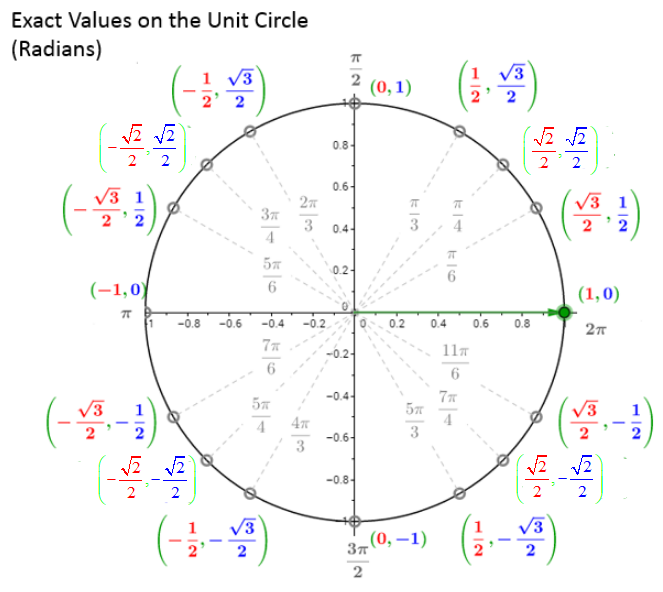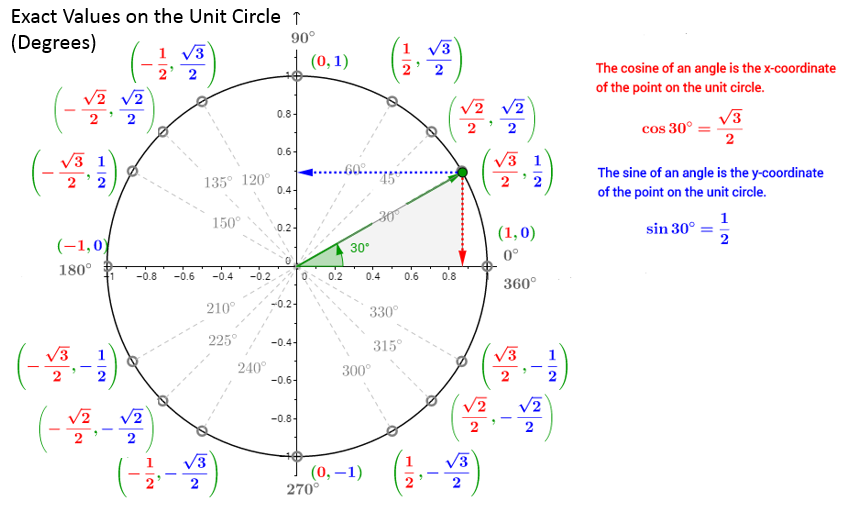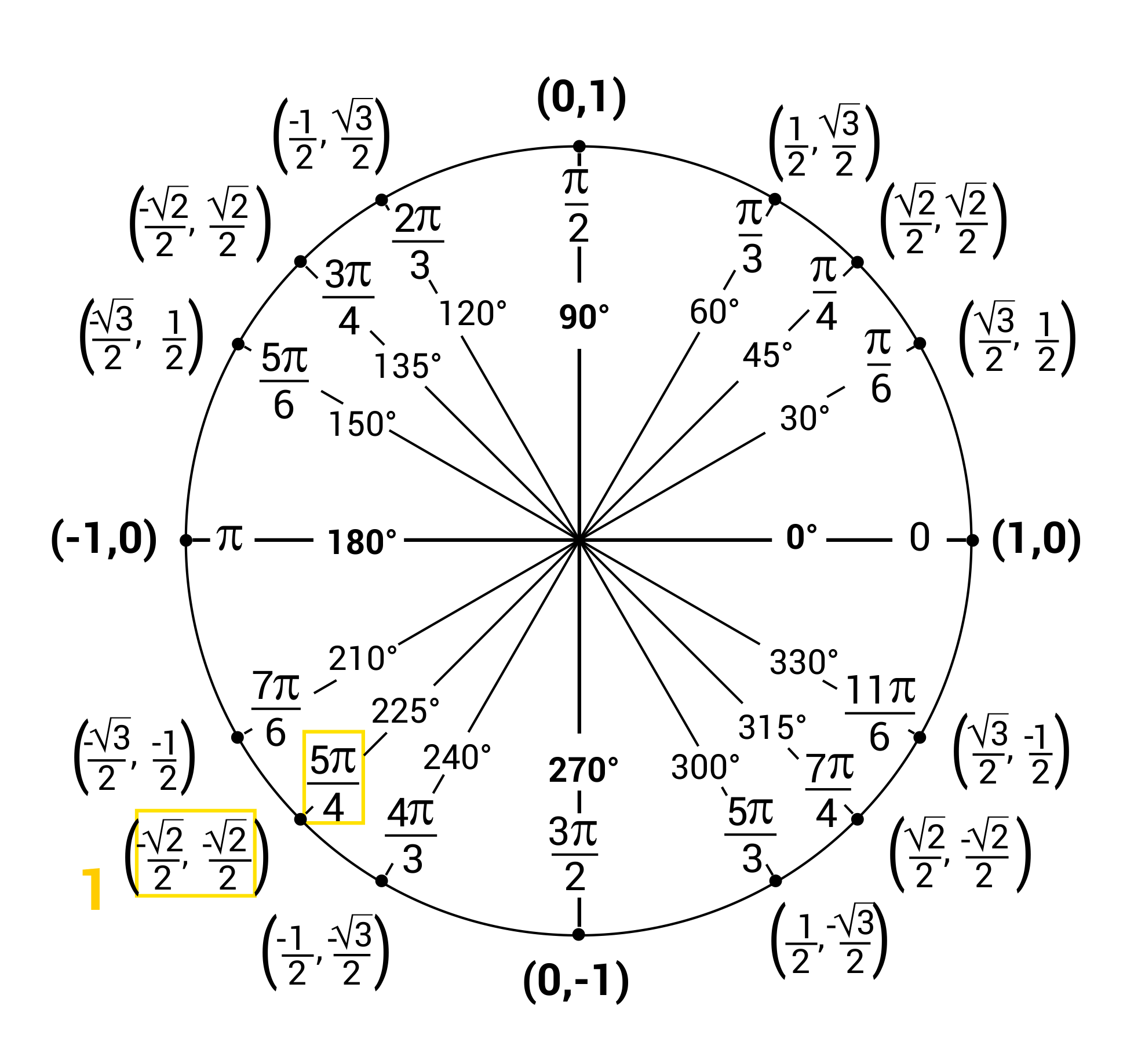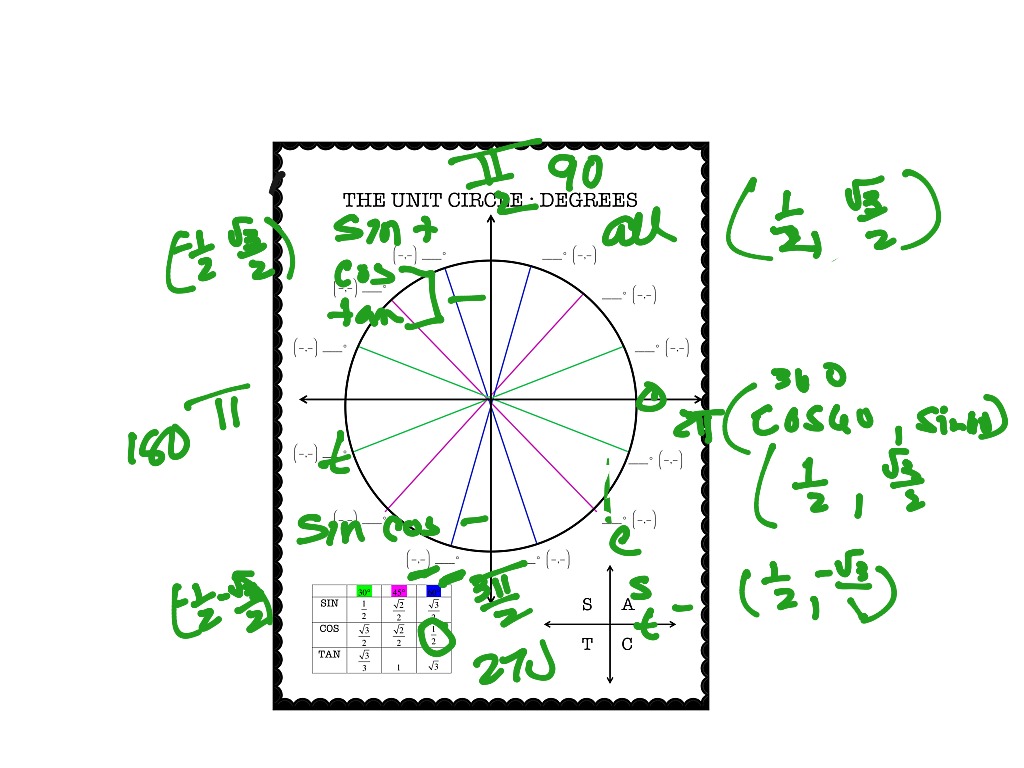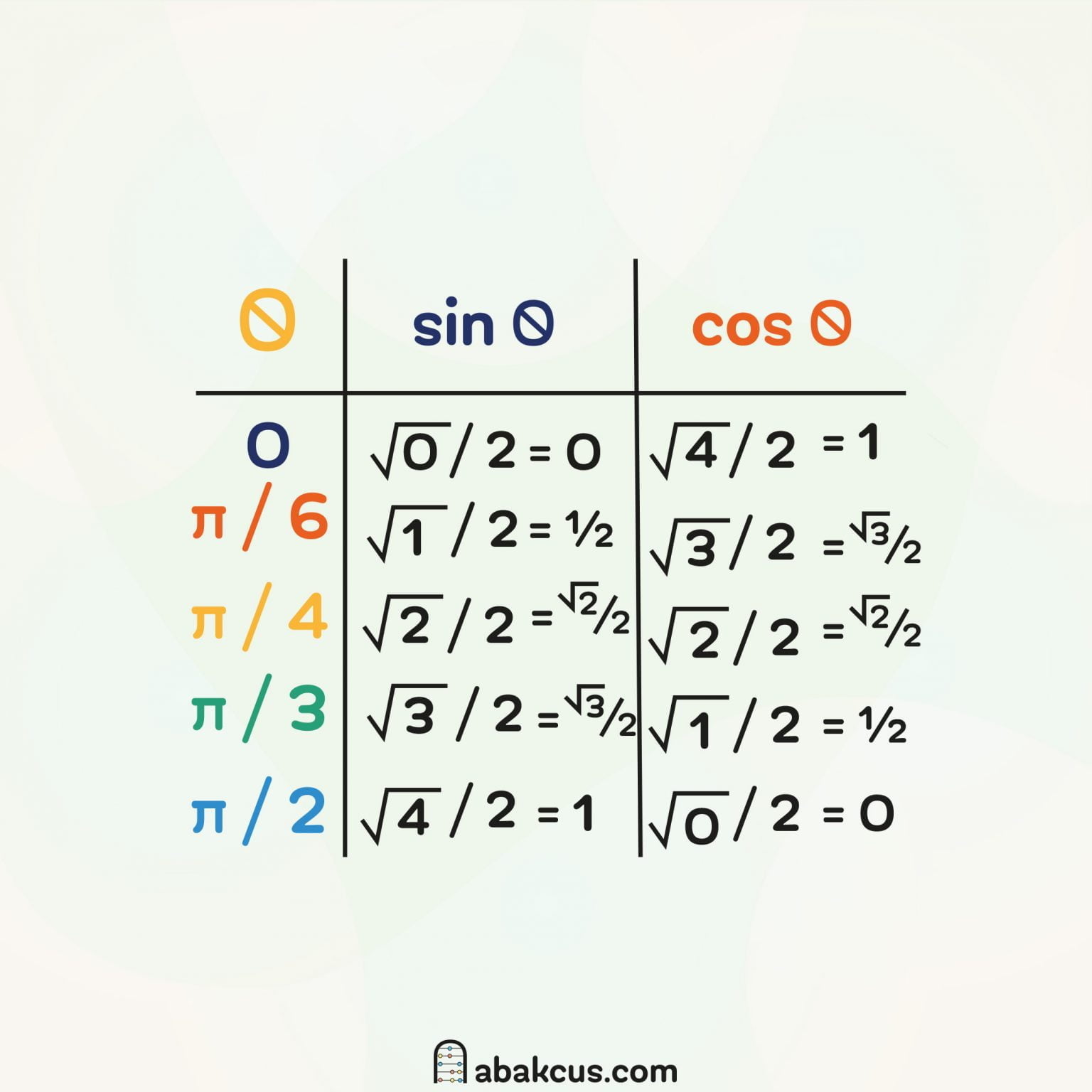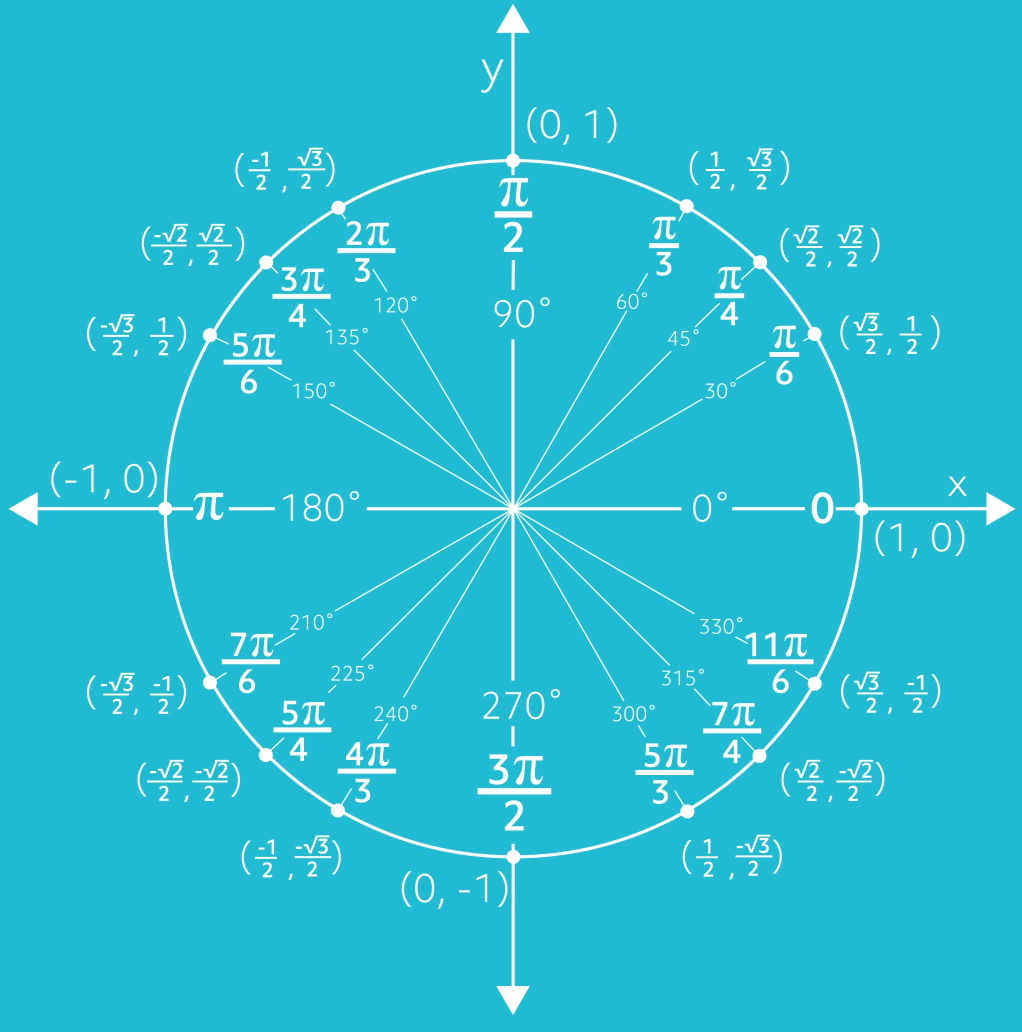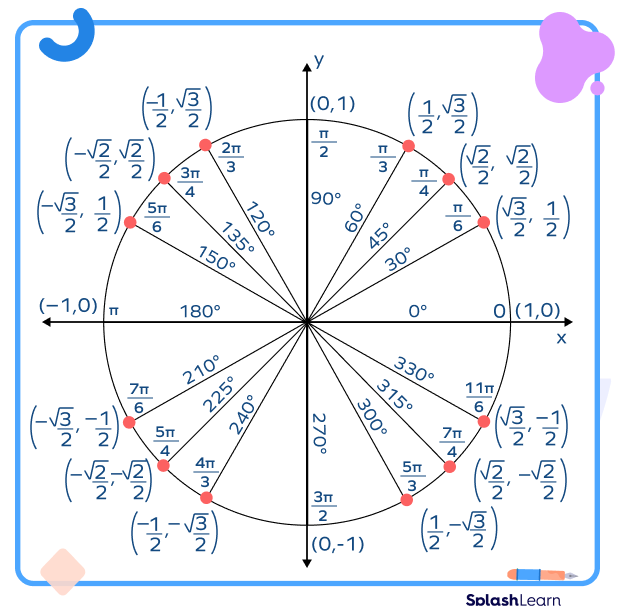How To Learn The Unit Circle Fast

Okay, let's be honest. The unit circle. It sounds intimidating, right? Like some secret society handshake only mathematicians understand. But trust me, it's less "Da Vinci Code" and more "connect-the-dots" after a bit of memorization.
Embrace the Symmetry: It's Like a Beautiful Clock
Think of the unit circle as a fancy, circular clock. Forget the numbers 1 through 12; we're dealing with angles in radians (bear with me!). The magic happens with symmetry. What happens on one side echoes on the other.
See those special angles like π/6 (30 degrees), π/4 (45 degrees), and π/3 (60 degrees) in the first quadrant? They're the cool kids. Learn their (x, y) coordinates and you unlock almost everything!
Imagine π/6 has the coordinate (√3/2, 1/2). Now, just reflect them across the x-axis, the y-axis and the origin.
Mnemonic Magic: Remember the Radicals!
This is the fun part. We can use some tricks to memorize the most common value on the unit circle! Create a silly sentence to remember the (x,y) coordinates. For example, "Three Turtles ate half a pizza!".
Then √3/2 turns into "Three Turtles" and 1/2 is “half a pizza”. You'll be giggling your way to trigonometric enlightenment in no time.
Quadrant Quirks: Signs Are Your Friends
Each quadrant has a personality. Quadrant I (top right) is all positive (x and y are both positive). Quadrant II (top left) is "x is negative, y is positive."
Quadrant III (bottom left) is the grumpy one: both x and y are negative. Finally, Quadrant IV (bottom right) is "x is positive, y is negative." A little sign language, and you're golden!
Practice Makes (Almost) Perfect: Doodle Away!
Draw your own unit circle. Over and over. Don't worry about making it perfect (mine always looks like a slightly squashed potato).
Fill in the angles, the coordinates. The more you doodle, the more it sticks. Think of it as artistic expression with a mathematical twist! Listen to your favourite podcast and start to draw it.
The Tangent Tango: A Little Division Goes a Long Way
Okay, tangent. It sounds scary, but it's just sine divided by cosine (y/x). And you already know sine and cosine from the coordinates. So, you are golden!
Some of those values might have radical in denominator. But that’s okay! You now have the ability to rationalize them! Celebrate small victories.
Embrace the Imperfection: It's About Understanding, Not Perfection
You will make mistakes. You will get the signs wrong. You will momentarily forget which coordinate goes with which angle. It's all part of the learning process. Be gentle with yourself.
The goal isn't to become a unit circle robot, spitting out values on command. It's about understanding the relationships, the patterns, the underlying logic. Like Aristotle said, "The only true wisdom is in knowing you know nothing." And that’s okay!
Find Your Zen: The Unit Circle as a Metaphor for Life
Believe it or not, the unit circle can teach us more than just trigonometry. It shows us balance, symmetry, and the cyclical nature of things. It is the foundation of circular motions, which is the base of our universe.
It's a reminder that what goes up must come down, and that even seemingly complex problems can be broken down into simpler, more manageable pieces. Plus, knowing your trig functions might impress someone at a party. Or not. But hey, you'll know!
So, go forth and conquer the unit circle! Embrace the challenge, the silliness, and the surprisingly beautiful patterns within. You might just surprise yourself with what you discover. Good luck!

